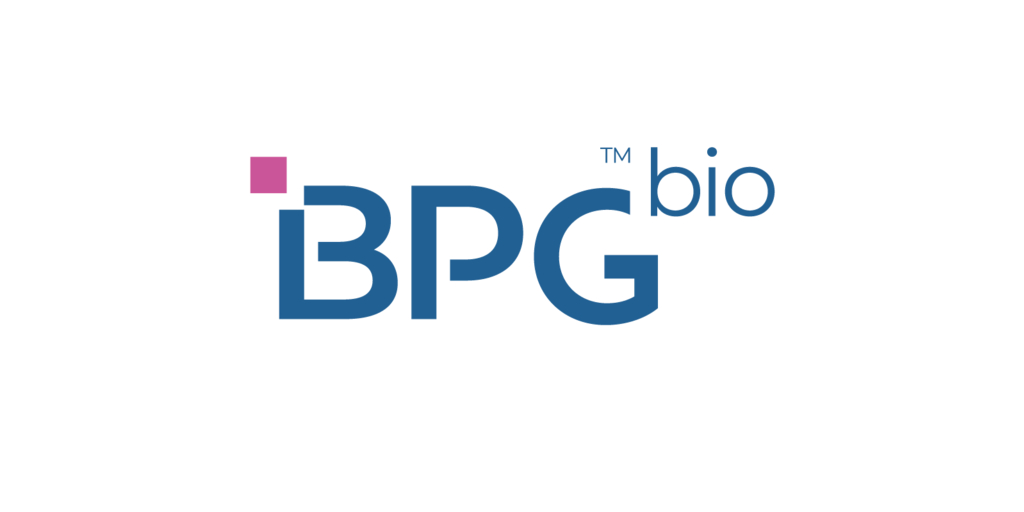Company is planning a potential pivotal trial of BPM31510IV targeting multiple CoQ10 deficiency mutations at multiple US and EU sites
BOSTON--(BUSINESS WIRE)--#bpgbio--BPGbio, Inc., a leading biology-first, AI-powered, clinical stage biopharma focused on mitochondrial biology and protein homeostasis, today announced that the U.S. Food and Drug Administration (FDA) has granted a Rare Pediatric Disease designation for BPM31510IV, its investigational treatment for primary coenzyme Q10 (CoQ10) deficiency. This marks the first time a treatment for primary CoQ10 deficiency has received this designation, positioning BPGbio at the forefront in global efforts to address this rare, debilitating genetic disorder.


Primary CoQ10 deficiency is an ultra-rare mitochondrial disorder that impairs the body’s ability to produce CoQ10, a critical molecule in the stabilization of biomembranes, production of cellular energy or ATP, and control of cellular redox states. Affecting fewer than 1 in 100,000 people, this deficiency can cause developmental delays, muscle weakness, seizures, and life-threatening damage to vital organs, with symptomatic onset as early as birth but more typically in early childhood. Currently, there are no approved treatments that effectively correct or ameliorate CoQ10 deficiency because oral CoQ10 supplements do not achieve therapeutic levels in severely affected organs like the brain, muscle, and heart.
“The mitochondrial disease community is excited about this important designation, as it marks a major milestone on the path to developing a treatment for a form of mitochondrial disease that affects approximately 2,500 individuals in the United States and 120,000 worldwide,” said Philip Yeske, Ph.D., Interim Managing Director and Science & Alliance Officer of the United Mitochondrial Disease Foundation, the largest patient advocacy organization for mitochondrial disease. “We are deeply grateful for BPGbio’s dedication to advancing research and treatment options for the primary CoQ10 deficiency patient community.”
The FDA’s Rare Pediatric Disease designation is available to companies working to develop medicines for pediatric populations with rare diseases for which there are currently no other approved treatments. This designation also makes BPGbio eligible to receive a priority review voucher upon BPM31510's approval for primary CoQ10 deficiency.
"We are honored to receive this designation for BPM31510," said Vijay Modur, M.D., Ph.D., SVP & Chief Medical Officer at BPGbio. "This milestone brings us one step closer to providing an effective treatment option for children with primary CoQ10 deficiency. We are now preparing to initiate a trial targeting multiple CoQ10 deficiency mutations with the goal of transforming patient lives.”
In addition to primary CoQ10 deficiency, BPM31510IV has received orphan drug designation for glioblastoma multiforme (GBM), and pancreatic cancer. In its topical form, BPM31510T has received orphan drug designation for epidermolysis bullosa (EB). BPGbio’s proprietary NAi Interrogative Biology® Platform, which integrates patient biology with AI-driven analysis, was instrumental in identifying BPM31510 as a candidate for treating CoQ10 deficiencies, further broadening its therapeutic potential.
“BPM31510 has been developed in topical, IV and oral formulations and is a prime example of the power of our biology-first approach to drug discovery and development, illustrating the powerful predictive capabilities of our NAi Interrogative Biology platform, and the benefit of validating AI-derived predictions through wet lab experiments and in vivo modeling,” said Niven R. Narain, Ph.D., President and CEO of BPGbio. “By using hypothesis-free causal AI to analyze vast amounts of biological data, we were able to uncover and validate new potential applications BPM31510, including its potential to address mitochondrial diseases like primary CoQ10 deficiency. As we continue to refine our models, we hope to identify additional rare mitochondrial diseases, affecting up to 1 in 5,000 individuals in the US, for which BPM31510 may offer clinical benefit.”
About BPM31510
BPM31510IV is BPGbio’s lead candidate in late-stage development for aggressive solid tumors such as glioblastoma multiforme (GBM) and pancreatic cancer. Other topical and oral formulations of the investigational agent are also being developed as a potential treatment for several rare diseases. The compound has demonstrated a tolerable safety profile and shown potential clinical benefits across multiple disease indications. Validated by BPGbio’s NAi Interrogative Biology platform, BPM31510 induces a hallmark shift in the tumor microenvironment (TME) by modulating mitochondrial oxidative phosphorylation in aggressive tumors, leading to cancer cell death. In many mitochondrial diseases, restoring CoQ10 levels can overcome the effect of mutations in genes that lead to mitochondrial dysfunction. BPM31510 has been granted Orphan Drug Designation by the FDA for GBM, pancreatic cancer, and epidermolysis bullosa (EB), as well as Rare Pediatric Disease designation for primary CoQ10 deficiency.
About BPGbio
BPGbio is a leading biology-first AI-powered clinical stage biopharma focused on mitochondrial biology and protein homeostasis. The company has a deep pipeline of AI-developed therapeutics spanning oncology, rare disease and neurology, including several in late-stage clinical trials. BPGbio’s novel approach is underpinned by NAi, its proprietary Interrogative Biology Platform, protected by over 400 US and international patents; one of the world’s largest clinically annotated non-governmental biorepositories with longitudinal samples; and exclusive access to the most powerful supercomputer in the world. With these tools, BPGbio is redefining how patient biology can be modeled using bespoke Bayesian AI specifically designed for solving large-scale biology challenges. Headquartered in greater Boston, the company is at the forefront of a new era in medicine, combining biology, multi-modal data, and AI to transform the way we understand, diagnose, and treat disease. For more information, visit www.bpgbio.com.
Contacts




